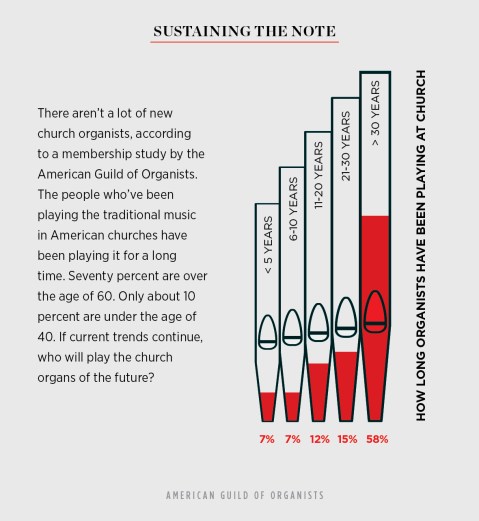Worship service at center of COVID-19 outbreak
South Korean health officials traced more than 1,000 suspected COVID-19 cases to one woman in her 60s who went to church. Officials had managed to prevent a major outbreak of the coronavirus for four weeks, tallying only 30 cases. “Patient 31,” however, was tested on February 15 and went the next day to the Shincheonji Church of Jesus, whose founder claims to be the second coming of Christ. Within a few days, hundreds of new coronavirus cases were connected to the sect.
Coronavirus shutdowns apply to churches
Legal experts say religious gatherings are not exempt from government bans on social events, despite robust US protections of religious liberty. Many governors called for large events to be canceled starting in mid-March in response to the COVID-19 pandemic. The Centers for Disease Control and Prevention recommended holding no meetings of 50 people or more for eight weeks, which affects about 80 percent of religious congregations. Most churches moved services online, but a few refused to stop meeting. If states decide to enforce the ban, the Supreme Court has found governments may “substantially burden” religious exercise when it serves a legitimate state interest, when the law is generally applicable, and when the burden is as light as possible.
Holy Land tourism halted by COVID-19
The coronavirus is expected to devastate the economy of the Holy Land, which depends heavily on Christian tourism. When more than 100 cases were confirmed in Israel and dozens in the West Bank, the Israeli government mandated a 14-day quarantine for everyone entering the country from March to Easter. The Palestinian Authority instituted similar restrictions in the West Bank. This puts all Holy Land trips on hold during the busiest season of the year. About 70 percent of Bethlehem’s economy revolves around tourism, and 9 out of 10 Palestinians employed in tourism are Christians.
Government admits Christians are terrorist target
A Nigerian official acknowledged terrorists have been targeting Christians, departing from the government’s previous position. The minister of information and culture said in March that Boko Haram and the Islamic State West Africa Province have attacked Christians specifically to “divide Christian brother against Muslim brother.” After 11 Christians were executed and a regional leader of the Christian Association of Nigeria was beheaded, Christians accused the government of not doing enough to protect them. To date, terrorists have killed an estimated 27,000 citizens, including 7,000 Christians.
Parliament considers religious liberty law
Australian Prime Minister Scott Morrison proposed a revised version of his religious discrimination bill for the 2020 legislative session after Christian groups criticized the first draft. The bill says an honest expression of belief is not discrimination, even if it otherwise meets the criteria under a 1998 law. The bill would prevent large employers from restricting employees’ religious statements, with social media codes of conduct for example, and would allow religious groups to require employees to affirm religious doctrine. Some Christians were concerned the definition of “religious groups” didn’t include some charities and wanted to expand protections for health care workers.
Neo-Nazi charged for plot on black church
A 26-year-old Virginia man was arrested in February on charges that he “swatted” a historic black Baptist church, calling police to make a false report that would prompt armed officers to raid the building. According to federal prosecutors, the man is a leader in the neo-Nazi group Atomwaffen Division. The group espouses “accelerationism,” the theory that politics cannot solve the United States’ racial problems or “drain the swamp” and that only violence can secure the future for white America. In the same month, a Louisiana man pleaded guilty to setting black churches on fire for his black-metal album art.
Iraqi American Christians ask Trump administration for help
Two Iraqi American Christian leaders met with Vice President Mike Pence in February to ask him to halt deportations of refugees who may face severe religious persecution if they are forced to return to Iraq. Both men said that Pence was receptive and promised to help. In a campaign speech, President Donald Trump also said he would help Iraqi Christians stay in the US. The administration’s lawyers, however, have continued to call experts to argue in court that Christians are unlikely to be targeted in Iraq. About 1,400 Iraqi Americans have faced removal orders, most of them Christians living in Michigan.

Christians suggest change to divorce law
In Egypt, Orthodox, evangelicals, and Catholics jointly proposed a new law in March that would regulate family issues for Christians. Until now, Christian marriages, divorces, and inheritance have been subject to a patchwork of laws, including shari‘ah law in some divorce cases. The proposed change unifies the legislation, while allowing the three Christian groups to set their own restrictions on divorce. Egypt’s Ministry of Justice is reviewing the proposal.
Churches asked to help riot victims
The Evangelical Fellowship of India condemned violence in the nation’s capital and asked churches in New Delhi to aid riot victims. More than 200 were injured in three days of violence in February when protesters clashed over the Citizenship Amendment Act, which creates a path to citizenship for religious minorities who were persecuted by Muslims in Pakistan, Bangladesh, and Afghanistan but which blocks citizenship for Muslim refugees from those same countries. India has seen a rising tide of Hindu nationalism since Narendra Modi was elected prime minister, with increased hostility toward Muslims.











